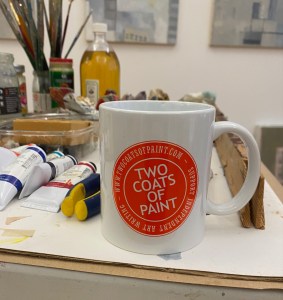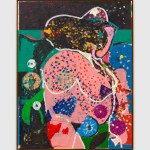
Contributed by Jonathan Stevenson / Writer-director Josephine Decker�s remarkably ambitious avant-garde film Madeline�s Madeline drills towards the molten core of the creative process and its hazards by way of the impressive young actress Helena Howard�s portrayal of the even more impressive eponymous young actress. Given that description, it goes almost without saying that the proceedings get complicatedly layered and potentially muddled. To Decker�s great credit, however, this boldly meta film closes strong and clarifies more than it confuses.
Madeline is the cocky but unstable teenage daughter of Regina, a single New York mother (Miranda July, aptly meek and befuddled). She has a heavy vicarious investment in Madeline, who is part of an edgy experimental theater project run by Evangeline (Molly Parker, terrifically nuanced) � a supremely knowing professional cheerleader whose only vulnerability seems to be her obvious state of pregnancy. She urges Madeline to inject her personal life into her acting, which she does with a vengeance. Captivating all with audaciously intimate improvisations, Madeline frames herself as the ranking prodigy. She comes to dominate the project and, over-nourished by fawning attention and accolades, megalomaniacally extends her personal power well beyond the stage.
When Madeline is shown drunkenly attempting to entice Evangeline�s husband into deflowering her at a garden party the couple is hosting, it�s not clear � nor is it supposed to be � whether Madeline is just indulging her acting chops or really angling for an especially naughty hook-up. Madeline herself seems to conflate real life with acting, and thus to be both a victim and an exploiter of her craft. In turn, the filmmaker, by her own terms, is cast as an inevitably inadequate truth-teller, limited by the medium�s inherent contrivance. That itself is a significantly subversive truth.
The seduction episode gives Evangeline considerable pause, her confidence ebbing by the minute, and she considers dropping Madeline from the project. Talent prevails. Restored to her exalted perch after cruelly mocking her increasingly distraught mother in an improv session, Madeline completes the power reversal, engineering a kind of thespian mutiny that reduces Evangeline to a shattered, vanquished pawn. On the surface, then, the movie seems to devolve into a microcosm of the cult of celebrity, as Madeline becomes willfully and heedlessly messianic about her gifts.
Yet she is still just a narcissistic if precocious teenager who is more likely to flame out early than turn into the next Meryl Streep. The very tenuousness of her position raises the question of what artistic immersion is supposed to accomplish. Madeline has already managed to hijack whatever scene she is in. What she has failed to do is fully accommodate other actors, characters, and sensibilities. Howard�s performance in the movie is phenomenal. But the film concerns the insufficiency of mere dominance, and it remains to be seen whether she can she can do it all. So Decker has compelled Howard�s audience to stay tuned. That too, of course, is a key function of art.
Madeline�s Madeline, written and directed by Josephine Decker, with Helena Howard, Molly Parker, Miranda July, Okwui Okpokwasili, Felipe Bonilla, Lisa Tharps. Distributed by Oscilloscope.
Related posts:
On Film: Mania, serenity and the creative process
Art and Film: Women with dogs
Art and Film: Amy Jenkins hosts death
















